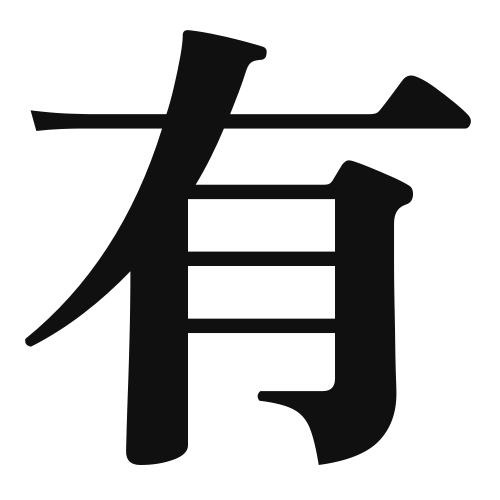1. Overview of Meaning
The kanji “有” (yuu) means “to have” or “to exist.” It indicates possession or existence of something, whether it be physical objects, abstract concepts, or qualities.
2. Formation and Radical
Formation of the Kanji: The kanji “有” is classified as a 形声文字 (phonetic-ideographic character). It combines the meaning component “月” (which can represent “flesh” or “body”) and the phonetic component “尤,” which gives a clue to its pronunciation.
Radical: The radical for “有” is “月,” which is often associated with the body or physical aspects.
3. Examples of Usage
Common Words and Phrases: Some frequently used words that include “有” are:
- 有名 (yuu mei) – famous
- 有料 (yuu ryou) – paid (as in admission fee)
- 有効 (yuu kou) – valid
Example Sentences in Daily Conversation:
- 彼はお金が有ります。 (Kare wa okane ga arimasu.) – He has money.
- この本は有名です。 (Kono hon wa yuumei desu.) – This book is famous.
4. Synonyms and Antonyms
Similar Kanji: A similar kanji is “持” (ji), which also means “to have” but emphasizes the act of holding or possessing something physically.
Antonyms: The antonym of “有” is “無” (mu), which means “to not have” or “non-existence.”
5. Cultural and Historical Background
Relation to Japanese Culture: The concept of “有” is significant in Japanese culture, reflecting the importance of possession and existence in various aspects of life, including spirituality and materialism.
Proverbs and Idioms: An example of a proverb that includes “有” is “有る者は無い者を助ける” (Aru mono wa nai mono o tasukeru), which translates to “Those who have help those who do not.” This reflects the cultural value of generosity and support.
